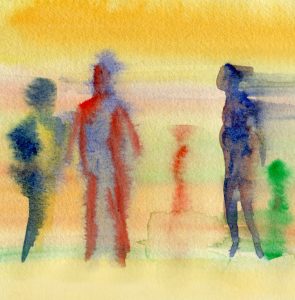 Some of these are things you can do on your own. Some are things that are easier if working in a group for support and dividing up tasks.
Some of these are things you can do on your own. Some are things that are easier if working in a group for support and dividing up tasks.
1. Contact your local leaders to insist that a community review board of police complaints be created where you live. If one already exists, how are the members selected? Is it made up of a diverse membership, not only racially but economically, and of people with diverse life experiences? Does it have enough power to sufficiently respond to a harmful occurrence? If not, discover what steps you can take to have one formed.
2. Communicate with local officials and police department to find out what training local police receive regarding sensitivity to stress and trauma, de-escalation, building community relationships, restorative justice and restorative practice techniques.
3. Push for a review of the nation’s police forces to remove officers who repeatedly exhibit racial bias, disregard of rules, history of abuse of others, history of abuse of power, or willingness to dehumanize people. Ensure that new officers receive psychological screening for the above behaviors before hire.
4. Seek to ensure that local police officers have ample access to psychological support throughout their career, and attend regular required training that develops and reinforces tools for addressing problems without use of force.
5. Seek ways to support and reward officers, precincts and departments who perform duty with a true dedication to peace.
6. Educate yourself and your children on restorative justice and practices. Support restorative justice practice and programs in your community as a way of promoting accountability from a young age without force or threat of violence.
7. Educate yourself and your children on non-violent communication and practices. Reduce your actions and speech that express judgement, domination, and blame as a way of making your own life more peaceful and reducing the cumulative effects of day-to-day harm acted upon others in your community.
8. Read. Study. The pain resulting from the dehumanization of groups of people has been a shadow in our country since its inception. Taking time to examine these parts of our history is an important part of changing our cultural attitudes that have promoted racial injustice.
9. Look for ways that you personally have supported or allowed racist and dehumanizing practices to persist in your community and country. Be honest, and keep looking. In the United States, we have never lived up to the promise of “liberty and justice for all.” How can you participate in changing that?
10. Pray. Meditate. For courage, insight, vulnerability, honesty, humility needed to foster an environment of peace. For all who are in need of justice, that it may come. For all who stand in its way, that they may grow, heal, and change.